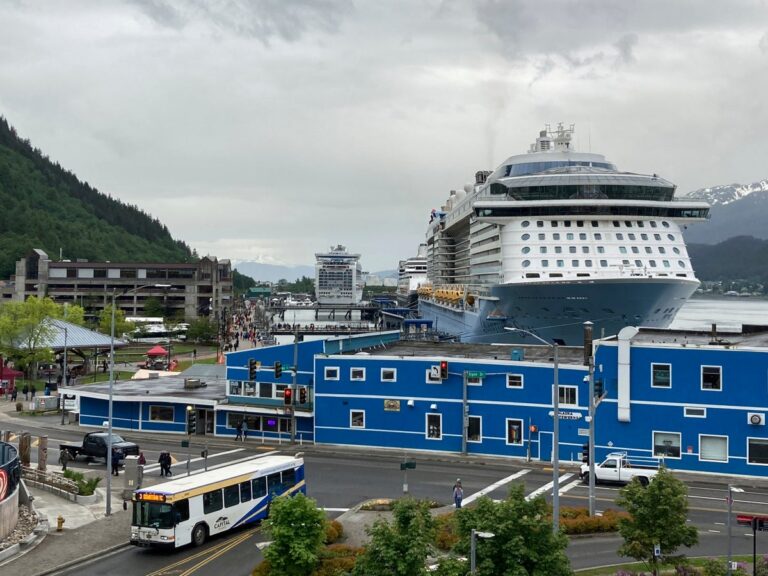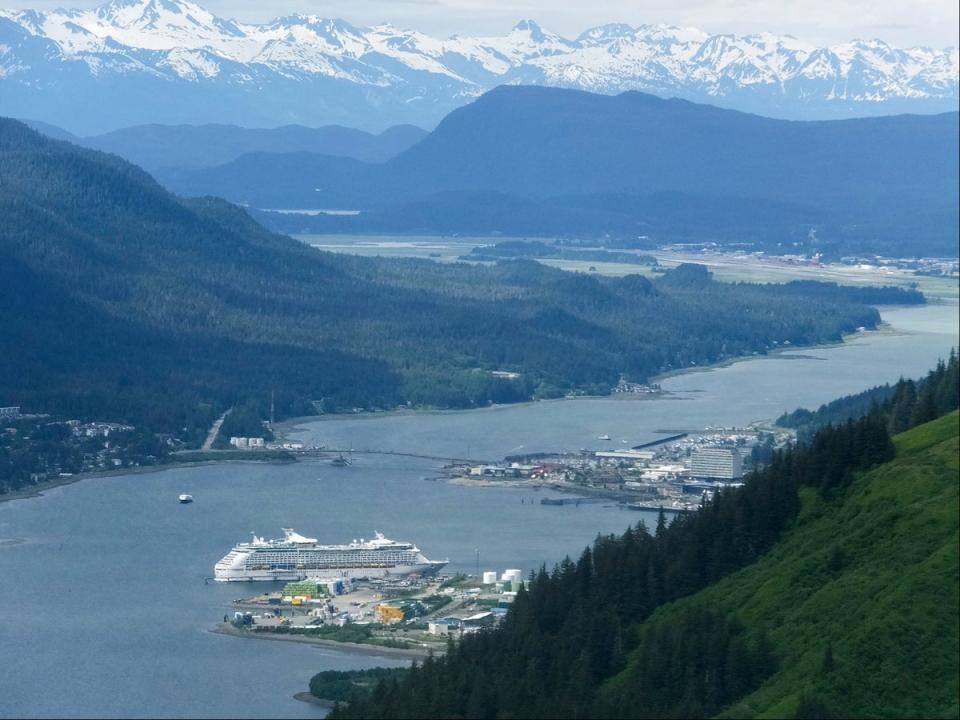Alaska’s capital city will impose new limits on the number of cruise ship passengers who can visit in a day, following a post-pandemic tourism surge.
Last year, Juneau’s roughly 32,000 residents endured throngs of hikers, swarms of whale watchers and swarms of helicopters hovering overhead, while a total of about 1.6 million tourists disembarked at the port, up to 21,000 a day at peak times.
The city government has now signed a voluntary agreement with the cruise ship industry to limit the number of ships that can call at the port each day starting in 2026.
The agreement limits calls to ships with 16,000 beds per day from Sunday to Friday and 12,000 on Saturday, but the actual number of visitors may be higher because cruise ships are often over capacity.
“The city’s position is that there is no capacity on our current infrastructure to accommodate the increased number of cruise ships and we have negotiated a daily passenger limit to reduce our busiest days,” the city’s tourism manager Alexandra Pearce told the Guardian.
“Cruise tourism is important to the local and regional economy and we need to be good neighbors and strike a balance between concerned residents and the local livelihoods that depend on the tourism industry.”
A cruise ship docked next to the port of Juneau is overwhelmed by nature in June 2017. (AP Photo/Becky Bohrer)
But some locals believe the new restrictions don’t go far enough, and are pushing a ballot measure that would lower the bed limit to 250 on Saturdays and the Fourth of July, effectively banning most cruise ship operations on those days.
“What we’re asking for is one day a week, and on the Fourth of July, when locals can go downtown, visit the glaciers, hike the trails and fish without having to compete with thousands of cruise ship passengers,” supporter Steve Krall told the Juneau Empire last week.
“This is a modest and reasonable request: Give everyone a simple rest day.”
Other residents oppose the ballot measure, arguing that cruise ships bring in so much consumer spending and tax revenue that the city and its residents cannot afford to ignore.
Juneau, a former gold mining town separated from the Pacific Ocean by the rocky maze of the Alexander Islands, bills itself as the world’s most popular whale-watching destination, with a tourist season that lasts about 22 weeks.
According to the Alaska Beacon, the number of cruise ship passengers visiting Juneau is expected to increase by 44% between 2022 and 2023, which Pierce called “shocking” and at times “suffocating” for many residents.
The new agreement is reportedly intended to keep tourism numbers roughly constant and give the city time to expand its infrastructure, while building in enough delays to allow cruise lines to adjust their future schedules.


